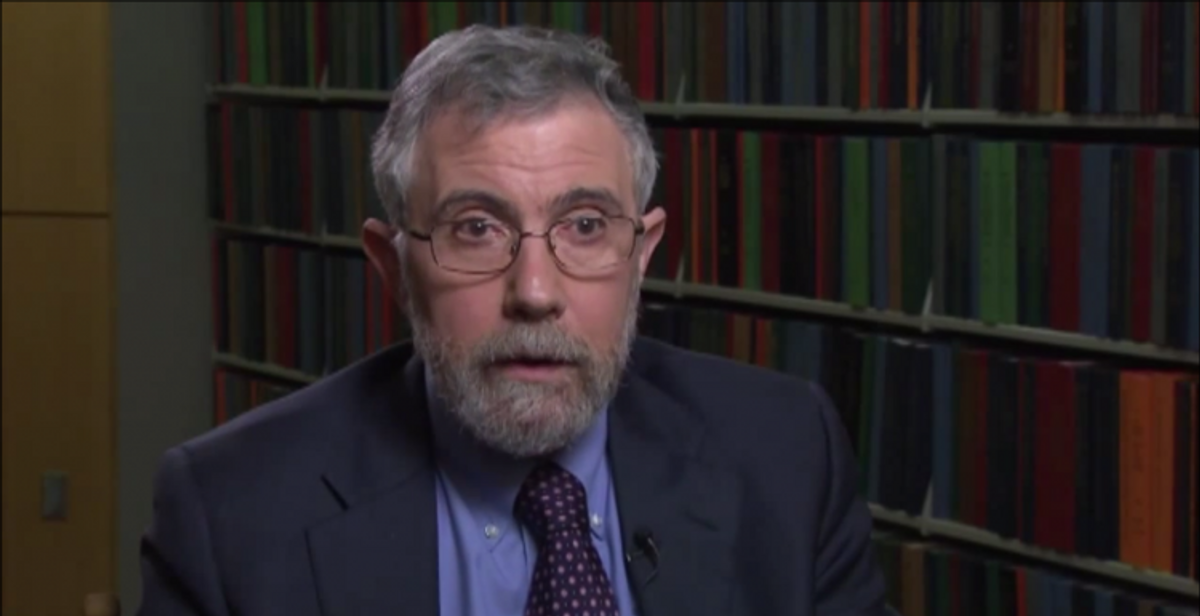In his most recent piece for the New York Times, liberal columnist and celebrated economist Paul Krugman argues that the trade-off traditionally understood to exist in a modern economy between fighting inequality and promoting growth is, at least in the American context, no longer relevant.
That's right, U.S. liberals — you can have your cake, eat it and redistribute the leftovers, too!
"It’s true that market economies need a certain amount of inequality to function," Krugman grants. "But American inequality has become so extreme that it’s inflicting a lot of economic damage. And this, in turn, implies that redistribution — that is, taxing the rich and helping the poor — may well raise, not lower, the economy’s growth rate."
To buttress his point, Krugman cites a new report from the ratings agency Standard & Poor's (hardly a hotbed of socialist radicalism) that finds the U.S. economy's level of inequality is a drag on economic growth. The report is a summary of other research rather than original work, but Krugman says it's still important because S&P's willingness to endorse the view shows "how mainstream the new view of inequality has become."
Krugman then explains why it is that taxing the rich and redistributing wealth to the poor is no longer a killer for economic growth, noting that "incentives aren’t the only thing that matters for economic growth" and that "[o]pportunity is also crucial." Without a more level playing field, Krugman explains, the result is "a waste of human resources," as millions of poor or simply working-class people are denied a chance to flourish.
"[G]overnment programs that reduce inequality can make the nation as a whole richer," Krugman claims, "by reducing that waste."
Krugman continues, pointing to concrete examples of redistributionist policies that help rather than hurt the economy overall:
The same thing, I’d argue, will end up being true of Obamacare. Subsidized insurance will induce some people to reduce the number of hours they work, but it will also mean higher productivity from Americans who are finally getting the health care they need, not to mention making better use of their skills because they can change jobs without the fear of losing coverage. Over all, health reform will probably make us richer as well as more secure.
Will the new view of inequality change our political debate? It should. Being nice to the wealthy and cruel to the poor is not, it turns out, the key to economic growth. On the contrary, making our economy fairer would also make it richer. Goodbye, trickle-down; hello, trickle-up.



Shares